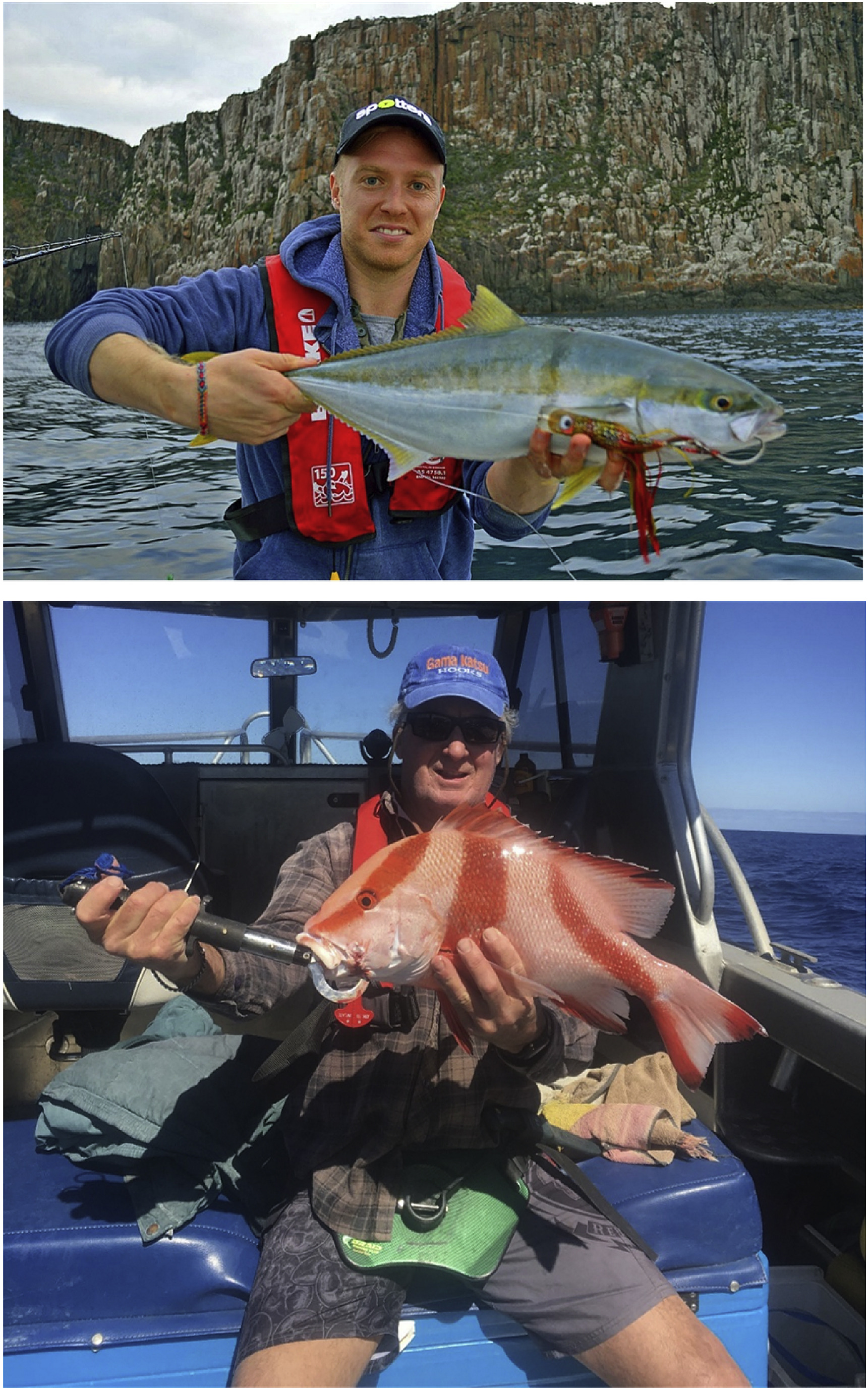Editor’s Choice: What resonated for me with this article is the conclusion that embedding data collection activities within a virtual citizen science application not only supported improved data collection for marine science but also provided better opportunities for volunteers to engage in a larger community that contributed to social learning. –LFF–
Methods (excerpt): In this paper using Redmap as a case study (Box 1), we investigated in what ways marine virtual citizen science (VCS) is developing platforms for citizen participation in conservation management. To what extent are such programs making a tangible contribution to environmental management? We explore this question, via analysis of a survey about the VCS program Redmap against Reed’s best practice for stakeholder participation in environmental management (Reed, 2008).

Fig. 1. Participants in the Redmap Australia project pictured with the ‘out-of-range’ observations they logged online. Top: Tom Srodzinski with his first Yellowtail kingfish (Seriola lalandi) caught from the Tasman Peninsula, off Tasmania (photo credit: Jonah Yick), and bottom: a red emperor (Lutjanus sebae) caught off Green Head, Western Australia (photo credit: James Florisson).
Source: Nursey-Bray, M., Palmer, R., Pecl, G., 2017. Spot, log, map: Assessing a marine virtual citizen science program against Reed’s best practice for stakeholder participation in environmental management. Ocean Coastal Management, 151: 1-9. DOI: https://doi.org/10.1016/j.ocecoaman.2017.10.031